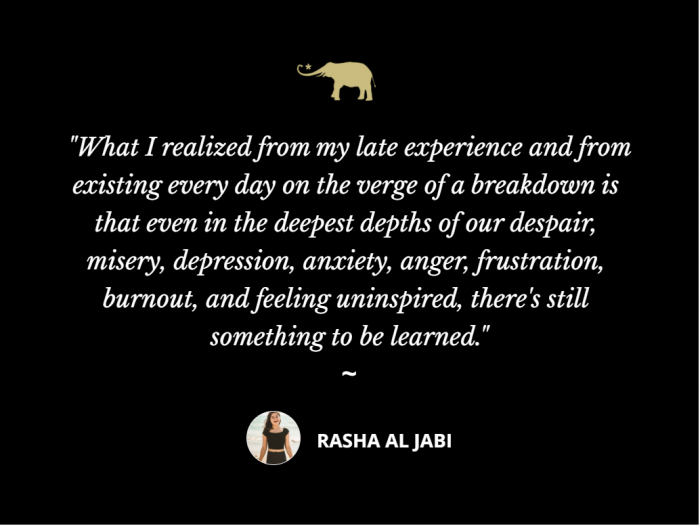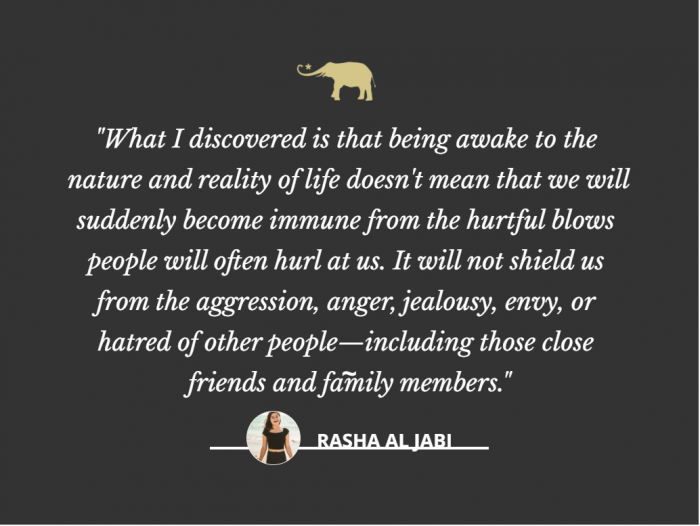~
Two weeks ago, I made the decision to leave a moldy environment and move in with a friend.
This friend, whom I’ve met through a girl who is in my running group, was more of an acquaintance at the time when I had reached out to him to ask whether I could have a safe place to stay for a while.
Without asking so many questions or needing to know the full background story behind why I was abruptly leaving my current home, he said, “You can stay for as long as you want.”
At the time, I had only known this person for two weeks and had only met him in person around three times.
We were strangers to each other. We still are.
It is still extremely awkward. I have never lived with a stranger before, let alone with a man.
But he is kind and caring and human in his own special way.
He is the type who would gladly do things for you—like fix you a salmon bagel sandwich while you’re swamped with every f*cking adult responsibility that you could think about: finding a new home, maintaining a full-time editing job, working part-time at a yoga studio, and remembering to meditate every single morning and drink water as if your life depends on it. Or carve 10 minutes of his day to help you run your errands. Or wash your clothes and put them in the dryer because you barely have a day off.
Yet, I am careful not to fall into the victim-savior complex. He is a kind soul, but he is not my savior.
There are days when I barely have the energy to shower, but I try my best not to reveal those sides of me because the last thing I’d want to do is trouble him with my own emotional baggage.
Yet on most days, the intensity of feeling like a burden summons every past trigger, every past wound, and every past trauma I have ever experienced. And when those visceral experiences come howling at my door, demanding my full care and attention, I shove them back by slamming the f*cking door, because I know I can’t afford to rest right now. Not yet.
My nervous system has been on full fight mode for two weeks now. As survivors of complex trauma, we become experts at oscillating between different modes of our nervous system—fight, fight, flee, or fawn—in order to keep our lives afloat, which is exactly what I’ve been doing lately.
But it is a merciless monster who insists on depriving me of good eight-hour sleep, forcing me to sink deeper and deeper and deeper in my anxiety at 2 a.m. and be wide awake by 4 a.m.
I am tired and burned out, and all I want to do is to have a good 8 hours of uninterrupted sleep.
But despite my burnout which I am trying hard to conceal by accepting the hard reality that life will often disappoint us, I have to keep up with all the adult life administration: wake up, meditate, shower, prepare breakfast, tidy up, go to work, move my body, water my plants, and smile at the kind person who has opened his home for me.
Yet, I know that I am not unique in my experience.
We are all human beings who exist within an interconnected, complex, relational fabric the includes other humans, too. Sometimes, the humans we encounter will perpetuate their own trauma and unconscious, unhealed patterns onto us. This leads to our getting hurt by their unconscious actions, words, or emotions.
What I discovered is that being awake to the nature and reality of life doesn’t mean that we will suddenly become immune from the hurtful blows people will often hurl at us. It will not shield us from the aggression, anger, jealousy, envy, or hatred of other people—including those close friends and family members. Including those whom we’ve entrusted with our grief and vulnerability only to be used against us during moments when we’re down on our knees.
It simply means that instead of instantly reacting to life’s unfolding—whether we classify them as good or bad—we are able to pause for a little while, maybe even breathe, and choose a more conscious reaction from a place of empowerment rather than mindless aggression.
What I realized from my late experience and from existing every day on the verge of a breakdown is that even in the deepest depths of our despair, misery, depression, anxiety, anger, frustration, burnout, and feeling uninspired, there’s still something to be learned.
Sometimes, the lesson might be as simple as proving to ourselves that we were able to get out of bed and cook a meal, even if it’s the only productive thing we did all day.
Sometimes, the lesson might be in being okay with not getting out of bed at all because it is exactly what our bodies and our nervous system needed.
Sometimes, the lesson might be in sulking in the silence of our grief, even when the pain might feel deafening and endless.
Sometimes, the lesson might be in accepting help from others without feeling the need to return the favor instantly.
On most days, I find myself oscillating between full-blown grief or intense anger. But I am trying my best not to direct those emotions to the wrong places or persons.
In the midst of my despair, I feel restless. I find it challenging to feel my feet on the ground or to take a moment to breathe.
Sometimes, I can’t even feel my body, and that’s okay.
Sometimes, things feel incomprehensible, indecipherable, and utterly meaningless, and that’s okay.
Sometimes, adulting seems like an enigma that’s unsolvable, and that’s okay.
Life isn’t a test that we are meant to pass or a challenge that we must overcome. It is an experience that we are meant to live. It is a gift that we are being asked to remain awake for despite our recurrent grief, confusion, and sadness.
And in those moments whenever I feel confused, what comes to me are these beautiful and gentle words by Pema Chödrön that remind us of the nature of our existence. I hope they remind you of your nature too:
“We think that the point is to pass the test or overcome the problem, but the truth is that things don’t really get solved. They come together and they fall apart. Then they come together again and fall apart again. It’s just like that. The healing comes from letting there be room for all of this to happen: room for grief, for relief, for misery, for joy.”













Read 24 comments and reply